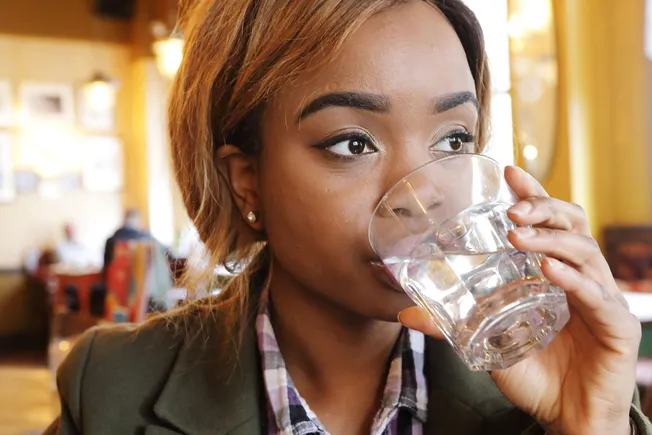

Medically Reviewed by Poonam Sachdev on November 02, 2023
Written by WebMD Editorial ContributorsAbout 60% of your body weight is made of water. You need it for every single body function. It flushes toxins from your organs, carries nutrients to your cells, cushions your joints, and helps you digest the food you eat.
If you don’t get enough water, you can become dehydrated. Severe cases of dehydration can cause dizziness, confusion, and even seizures.
That’s why it’s important to get the water your body needs every day. No set amount is right for everyone. How much you need can depend on your size, how much exercise you do, how hot the weather is, and other factors. Your doctor can help you determine what’s right for you.

We’ve all heard that eight glasses of water each day is best. But the truth is, the daily water intake that each person needs varies. But there are some basic guidelines:
If you’re outside on a hot day or doing something that makes you sweat a lot, you’ll need to drink more fluids to stay hydrated. The same is true if you have an illness that causes you to throw up, have diarrhea, or run a fever.
If you have a condition like heart failure or a particular type of kidney disease, you may need to limit your fluid intake. Talk to your doctor about what’s right for you.
Like adults, how much water children need depends on many things, like their age, how much they weigh, and their gender. Other things that play a role include how healthy and active they are and what the climate is like where they live.
In general, children and teens need about 6 to 8 cups of water a day. They should also eat lots of fresh fruits and veggies, which are full of water. Younger kids need less water. Kids aged 1-3 years old should drink about 4 cups of water a day, and those aged 4-8 years old need about 5 cups.
During play or exercise, a good goal is to drink a half cup to 2 cups of water every 15 to 20 minutes.
Infants are the exception to this rule. Babies under 6 months shouldn't be given plain water. Because a baby's stomach is about the size of an egg, giving them plain water may take up the limited space in their belly for breastmilk or formula. These higher-calorie meals are essential for their growth.
Water helps to keep you healthy in a number of ways. When you drink enough, it:
There's some evidence that hints that drinking more water can help you lose weight. These benefits include:
Just drinking more water may not lead to significant amounts of weight loss. But drinking water can aid your health and help you stay more active overall.
Your recommended water intake includes all sources -- drinking water, other beverages, and food. But be careful -- certain fluids have their drawbacks.
The following have water, but they can also be high in sugar and calories:
It’s rare to drink too much water if you’re a healthy adult who eats a regular American diet. But it can happen.
If you drink a lot of water but your kidneys can’t get rid of the excess, you could develop a condition doctors call hyponatremia. That means the minerals in your blood are diluted, or watered down. As a result, sodium levels in the blood fall. Your body’s water levels rise and your cells swell. It can lead to serious (even life-threatening) problems. Endurance athletes, like marathon runners, are at risk for this condition.
Certain health conditions can also play a role in how much water you need. Ask your doctor for guidance if you:
Water intoxication
If you drink too much water, you may be at risk for water intoxication. Common water intoxication symptoms include:
It's rare to drink too much water. Often, cases of water intoxication result from drinking too much water after exercise or competing in water drinking competitions. If left untreated, water intoxication can be fatal.
Try the following tips to get more water:
Do you drink enough fluid that you rarely feel thirsty? Is your pee either clear or light yellow? If you can answer “yes” to both, you’re probably getting all the fluid you need.